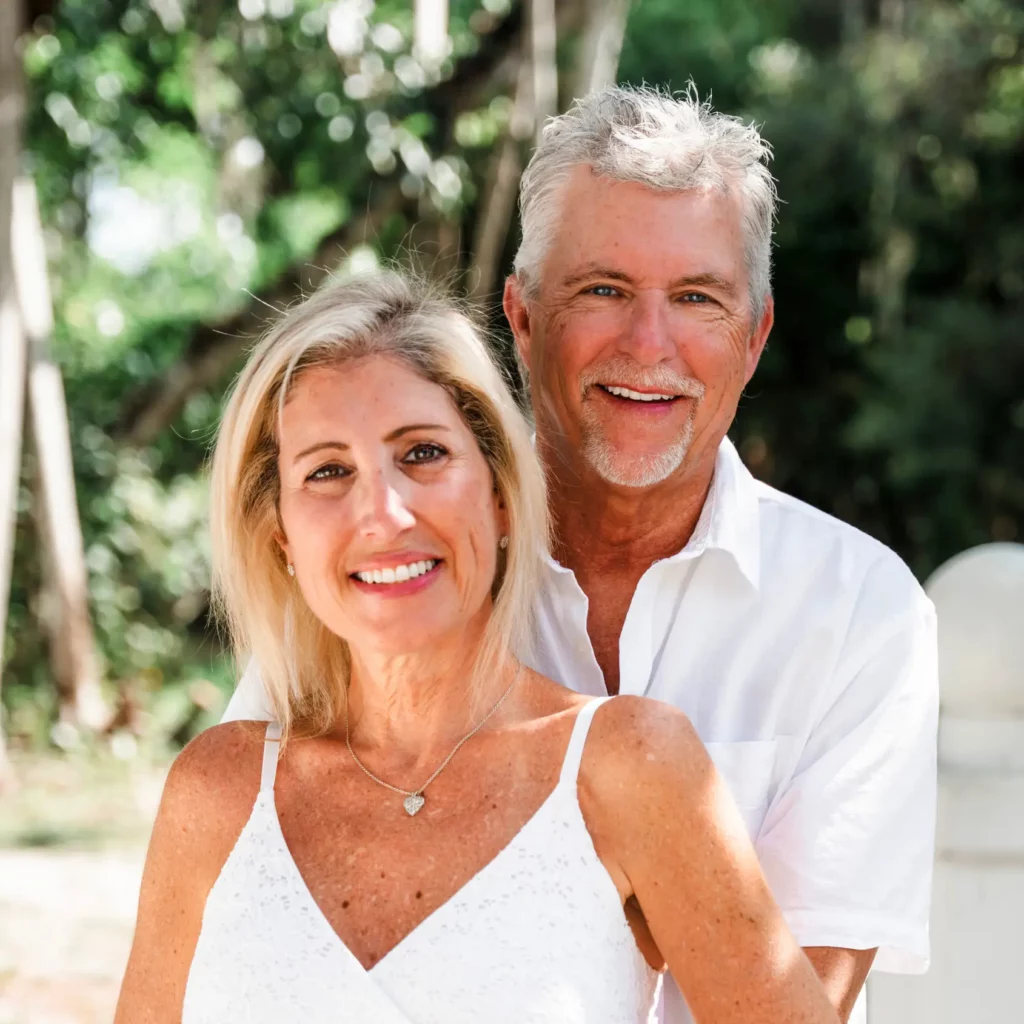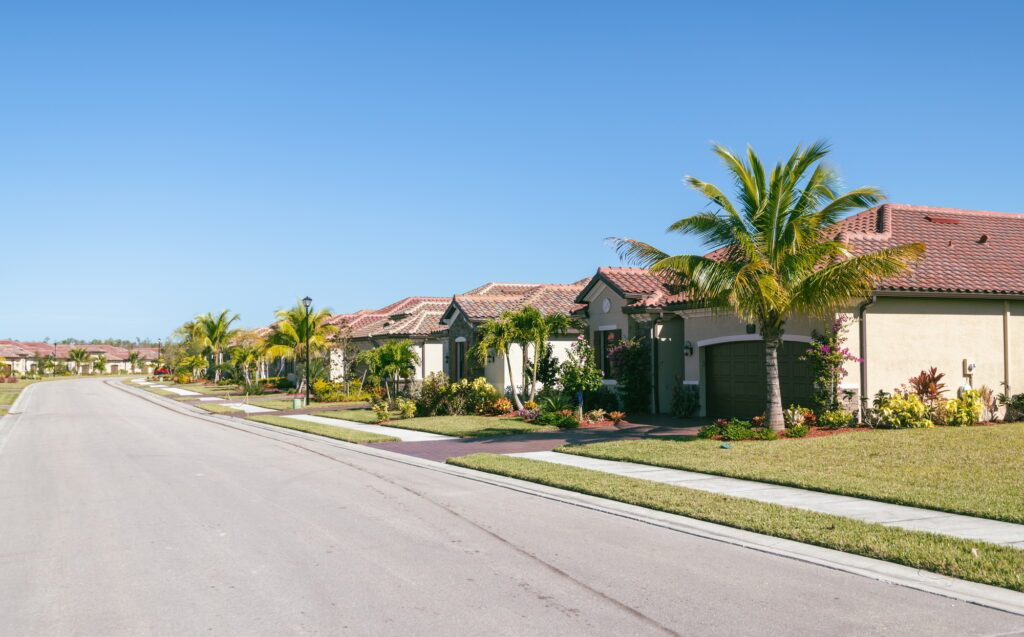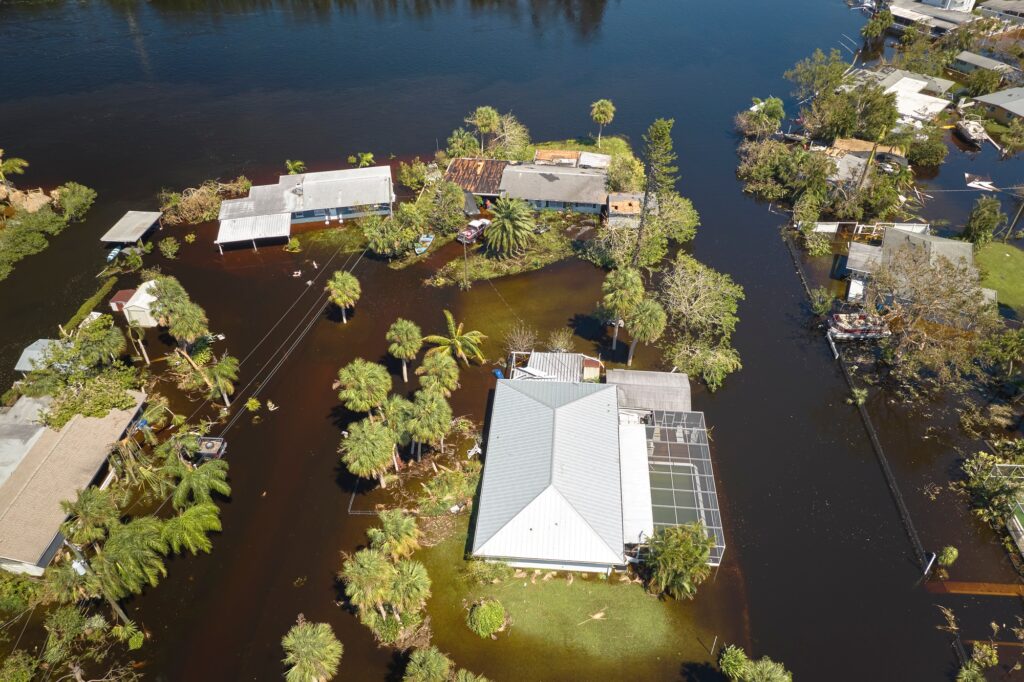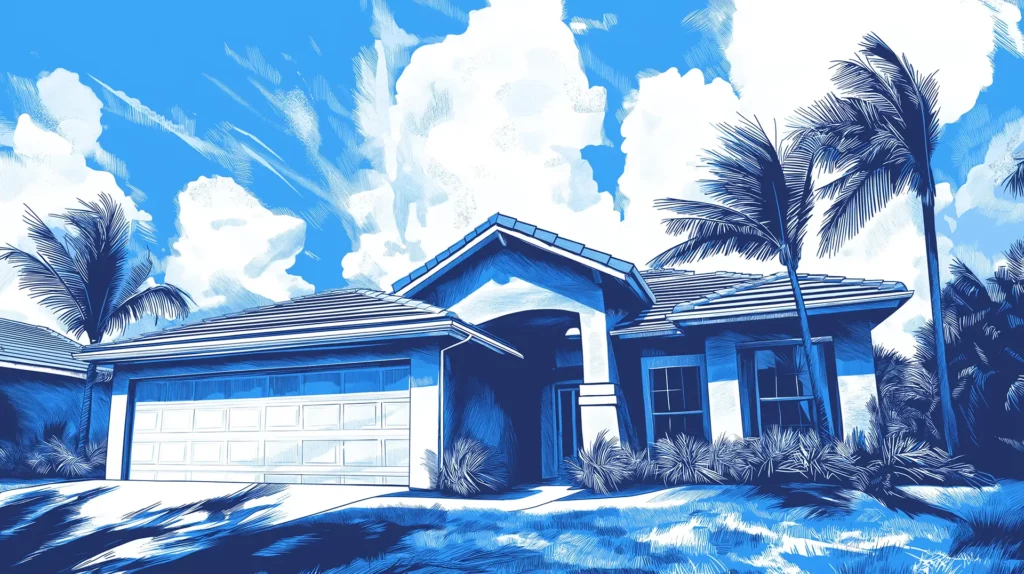Owning a condo comes with unique responsibilities. Unlike a traditional home, you share ownership of certain areas with others in your building. That’s where Condo Insurance Coverage comes in. It helps protect your unit, your belongings, and even your finances if something goes wrong. From storm damage to liability coverage, it’s an essential safety net—especially in Fort Myers, Florida, where hurricanes and flooding are real risks.
What Is Condo Insurance?
Condo insurance, often called HO-6 insurance, is a policy designed to protect condo owners. It covers your personal unit, belongings, and liability. Condo Insurance Coverage is different from a traditional homeowners insurance policy.
Here’s how it works:
- Covers the Interior of Your Unit: A condo insurance policy typically covers everything inside the walls of your unit, including floors, ceilings, and fixtures. This is often referred to as “walls-in” coverage. The coverage excludes shared spaces like hallways and the building exterior — those are usually covered by your condo association’s master policy.
- Protects Your Personal Belongings: Your furniture, electronics, and clothing are protected from risks like theft or fire. According to the Insurance Information Institute, about 1 in every 350 insured homes has a property damage claim each year.
- Provides Liability Coverage: If someone gets injured inside your condo or if you accidentally damage someone else’s property, your policy has your back.
Condo insurance is different from homeowners insurance because you only need to insure your own unit. Areas like the roof and elevators are managed by the condo association. They use a master insurance policy that everyone in your condo building pays into via maintenance fees. However, master policies usually don’t cover your personal belongings or the inside of your unit. That’s where your individual Condo Insurance Coverage becomes essential.
Understanding the distinction between your policy and your association’s is key to ensuring you’re properly protected. The right condo insurance policy helps fill in the gaps and gives you peace of mind as a property owner.
Coverage Included in a Typical Condo Insurance Policy
Condo Insurance Coverage provides protection for common risks condo owners face. Here’s a closer look at the key areas typically included.
1. Dwelling Coverage (Interior Structure)
Dwelling coverage focuses on the interior structure of your condo unit. It’s sometimes called “walls-in” coverage. This includes walls, floors, ceilings, and fixtures like cabinets or countertops.
For example, if a burst pipe damages your hardwood floors, dwelling coverage may pay for the repairs. It complements your condo association’s master policy, which usually takes care of shared areas like roofs and lobbies.
Keep in mind that what your policy covers depends on your master policy type. Some master policies only cover the bare structure, leaving you to insure finished fixtures. Make sure to review both policies so you aren’t left with gaps.
2. Personal Property Coverage
Personal property coverage protects the items inside your condo. This includes furniture, electronics, clothing, and other personal belongings.
Imagine a fire damages your living room. Personal property coverage helps replace your couch, TV, or decor. Travel protection is another bonus—if your laptop is stolen while on the go, it’s often still covered.
Take inventory of your belongings to ensure they’re adequately insured. On average, people underestimate the value of their home contents by about 40%. For high-value items like jewelry or artwork, you might need extra coverage or a policy rider.
3. Liability Coverage
Liability coverage is your financial safety net. It steps in if someone is injured in your condo or if you accidentally cause damage to another person’s property.
For example:
- A guest trips over a rug in your living room and files a medical bill claim.
- A burst pipe in your unit damages your downstairs neighbor’s ceiling.
With liability coverage, you’re not paying out of pocket for these expenses. Most policies offer $100,000 to $300,000 in liability protection, but consider higher limits if needed.
4. Loss of Use/Additional Living Expenses (ALE)
If your condo becomes uninhabitable due to damage, loss of use coverage can help. It pays for temporary housing and related costs, such as hotel stays or meals. For example, if a hurricane severely damages your unit, you won’t have to scramble to cover lodging expenses.
According to statistics, it can take weeks or even months for repairs after severe storm damage. This coverage ensures you have a stable place to stay throughout that time.
5. Medical Payments to Others
Medical payment coverage is there for minor injuries guests may sustain while visiting you. It’s similar to liability protection but focuses on covering smaller costs, like first aid or emergency room bills.
For instance, if a neighbor cuts their hand in your kitchen, this coverage kicks in without a lawsuit being necessary. Limits are generally lower, often around $1,000 to $5,000.
By understanding these coverage areas, you can tailor your Condo Insurance Coverage to fit your needs. Taking a closer look at your policy now can save you from financial stress later.
Common Exclusions and Limitations in Condo Insurance
While Condo Insurance Coverage offers great protection, it’s important to know what isn’t included. Understanding these exclusions will help you decide if you need additional policies or riders.
Here are some common exclusions to look out for in your policy:
- Flooding:
- Condo insurance doesn’t typically cover flood damage.
- This can be a big issue in Florida, where flooding is a frequent risk. Fort Myers, for example, has seen major surge damage during hurricanes.
- FEMA reports that just one inch of water can cost a homeowner over $25,000 in repairs. That’s why many condo owners invest in separate flood insurance.
- Earthquake Damage:
- Earthquake coverage is another exclusion to be aware of. Though not common in Florida, this could be crucial if your property is in an area prone to seismic activity.
- Separate earthquake policies are available if you think this is a risk worth covering.
- Wear and Tear or Maintenance Issues:
- Insurance doesn’t cover items damaged by regular use, aging, or lack of maintenance.
- For example, if your A/C breaks due to old age, your policy won’t cover repairs.
- Certain High-Value Items:
- While personal property coverage protects belongings, there are limits. Expensive items like fine jewelry, art, or high-end electronics may exceed those limits.
- For these, you might need to purchase an added rider or endorsement.
Why Knowing Exclusions Matters
Florida’s climate presents unique risks, like hurricanes and flooding. Standard Condo Insurance Coverage is incredibly valuable, but gaps in coverage make it essential to consider additional policies where needed.
Review your condo association’s master policy and your individual policy carefully. It’s wise to work with an insurance agent familiar with Florida’s challenges so they can help you add the right coverage and reduce risks. Awareness now saves financial stress later!
Regional Considerations for Fort Myers, Florida Condo Owners
Living in Fort Myers, Florida, comes with beautiful beaches and sunny weather. But this Gulf Coast location also brings unique challenges for condo owners. Condo Insurance Coverage isn’t one-size-fits-all, and regional risks make comprehensive coverage a must.
1. Hurricane and Windstorm Coverage
Florida is no stranger to hurricanes. From June to November, homeowners brace for the possibility of severe storms. According to the National Oceanic and Atmospheric Administration (NOAA), Florida experiences the most hurricanes of any U.S. state.
Condo Insurance Coverage often includes windstorm protection, but there are special considerations for Florida residents:
- Policies in Florida typically have separate hurricane or windstorm deductibles. These deductibles are calculated as a percentage of your coverage limit, usually ranging from 2% to 5%.
- If your condo is damaged by a hurricane, you may need to cover that percentage out of pocket before your policy kicks in.
It’s worth checking if your policy includes extra protection or endorsements for wind-related damage. This coverage is especially vital for condo owners near the coast, as hurricane winds can reach over 150 mph.
2. Flood Insurance
Flooding is one of Fort Myers’ biggest risks. Hurricane Ian alone caused a storm surge of over 10 feet in 2022, leaving many homes underwater. Condo Insurance Coverage doesn’t include flood protection, so purchasing a separate flood insurance policy through the National Flood Insurance Program (NFIP) or private insurers is smart.
Key facts about flood insurance in Fort Myers:
- The average flood insurance premium in Florida is around $628 per year, according to FEMA.
- Coverage extends to damage caused by rising water levels, including storm surge and heavy rains.
Without flood insurance, repair costs can be overwhelming. Flood water can ruin floors, walls, and personal belongings—all costly to replace. Being in a coastal city, Fort Myers condo owners should prioritize this additional coverage.
3. Mold and Water Damage
Florida’s humid climate creates the perfect conditions for mold growth. Mold is not always covered under a standard Condo Insurance Coverage policy, especially if it’s caused by long-term moisture or neglect.
Here’s how to minimize risks and protect yourself:
- Fix leaks or water damage immediately to prevent mold growth.
- Install dehumidifiers in problem areas to control moisture levels.
- Check your insurance policy for water damage coverage, including accidental plumbing leaks or burst pipes.
Some insurers offer endorsements for mold-related claims, so explore if that’s right for your situation. Be proactive about preventing issues now to avoid costly repairs later.
Staying Protected in Fort Myers
Fort Myers’ natural beauty comes with its share of risks. From hurricanes to flooding, understanding these regional considerations helps you tailor your Condo Insurance Coverage. Having a well-rounded policy ensures you’re prepared, no matter what challenges Gulf Coast living throws your way.
Why Condo Insurance Coverage Is Essential in Fort Myers
Owning a condo in Fort Myers means living in one of Florida’s most breathtaking locations. But with the perks of coastal living come unique challenges. Condo Insurance Coverage isn’t just a nice-to-have—it’s a must-have for peace of mind and financial security.
Why It’s Necessary
Florida has a higher likelihood of hurricanes, flooding, and severe weather than many other states. According to NOAA, 40% of hurricanes in the U.S. make landfall in Florida. Fort Myers, located on the Gulf Coast, is particularly vulnerable to storm surge and flooding.
Here’s why having condo insurance is critical for Fort Myers residents:
- Protection from Costly Storm Damages
- Hurricanes can cause major damage to windows, walls, and roofs. Condo insurance helps repair and replace what’s damaged inside your unit.
- Without this coverage, you could be out thousands of dollars in repair costs after a single storm.
- Gaps in HOA Master Policies
- Your condo association’s policy may only protect the building’s exterior and shared spaces. It likely doesn’t cover personal belongings or upgrades you’ve made inside your unit.
- Condo Insurance Coverage ensures your unit’s interiors and possessions are included.
- Risk of Water Damage and Mold
- Fort Myers’ humidity poses a constant threat of water damage and mold. While some policies exclude mold, others allow you to add endorsements for broader protection.
- Liability Protection
- Hosting guests can be risky. If someone is injured in your condo, liability coverage protects you from lawsuits or medical costs.
Keeping Life Stable
Florida condo repair costs can be hefty. Statistics show Florida’s average annual homeowner insurance premium is about $4,200, the highest in the U.S. While condo insurance is generally more affordable, it’s estimated that the average cost in Florida starts around $800–$1,000 per year. This investment can save you from financial devastation caused by storm damage or expensive liability claims.
Condo Insurance Coverage is essential for Fort Myers residents who want to enjoy their homes without worrying about the unpredictable Gulf Coast weather. Having the proper coverage ensures you’re financially protected in good times and bad.
Tips for Choosing the Right Condo Insurance Policy
Picking the right Condo Insurance Coverage can feel overwhelming, but it doesn’t have to be. Here are some practical tips to help you find a policy that fits your needs while offering solid protection.
1. Assess Your Condo Association’s Master Policy
Start by understanding what’s covered by your condo association’s master policy. These policies usually fall into two categories:
- Bare Walls-In: Covers only the structure itself (walls, roof, etc.). You’ll need to insure everything inside your unit, including flooring, cabinets, and fixtures.
- All-In: Provides more extensive coverage, including built-in items or appliances.
Knowing which type your association has will help you avoid duplicating coverage in your personal policy.
2. Take Inventory of Your Belongings
Create a detailed list of everything you own. Apps like Sortly or Encircle can make it easier to document your belongings. This will help you determine how much personal property coverage you need.
Value these items accurately. A recent survey showed that over 60% of consumers underestimate the value of their personal possessions. Getting this right ensures you’re fully covered if you need to replace them.
3. Review Coverage Limits and Deductibles
Not all Condo Insurance Coverage is equal. Policies vary in their limits (the maximum amount they’ll pay out) and deductibles (what you pay out-of-pocket before coverage kicks in).
Things to consider:
- Ensure your policy limits are high enough to rebuild interior upgrades or replace all your belongings.
- Choose a deductible amount that you can comfortably afford in an emergency.
4. Check for Special Endorsements
Florida’s climate and unique risks may require additional coverage, such as:
- Hurricane Deductibles: Make sure you understand how this applies to your policy.
- Flood Insurance: Not included in standard coverage but essential for Fort Myers condo owners.
- Mold Coverage Riders: Florida’s humidity makes this worthwhile.
Ask your agent about optional endorsements to fill gaps in your Condo Insurance Coverage.
5. Work with a Local Insurance Expert
Local insurance agents know the risks specific to your area. Whether it’s understanding Fort Myers’ flood zones or helping you compare policies, their expertise can make a big difference.
A 2022 survey found that 55% of homeowners who worked with an agent felt more confident about their coverage compared to those who didn’t. Don’t be afraid to ask questions and lean on their advice.
Choosing the right Condo Insurance Coverage ensures you’re financially protected and prepared for the unexpected. It’s worth spending the time to find a tailored policy that fits your lifestyle and location. With the right guidance and careful assessment, you’ll have peace of mind knowing your condo is in good hands.
From protecting your unit to covering your belongings and liability, Condo Insurance Coverage is essential for Florida condo owners. We’ve covered what typical policies include, like dwelling and personal property protection, and the risks they often don’t cover, such as floods and wear and tear. Living in Fort Myers means dealing with unique challenges like hurricanes, flooding, and mold, so understanding regional risks is vital. Choosing the right policy involves reviewing your needs, understanding your condo association’s master policy, and getting expert advice.
Don’t leave your condo unprotected. Contact us today for personalized advice or to get a quote tailored to your needs.
